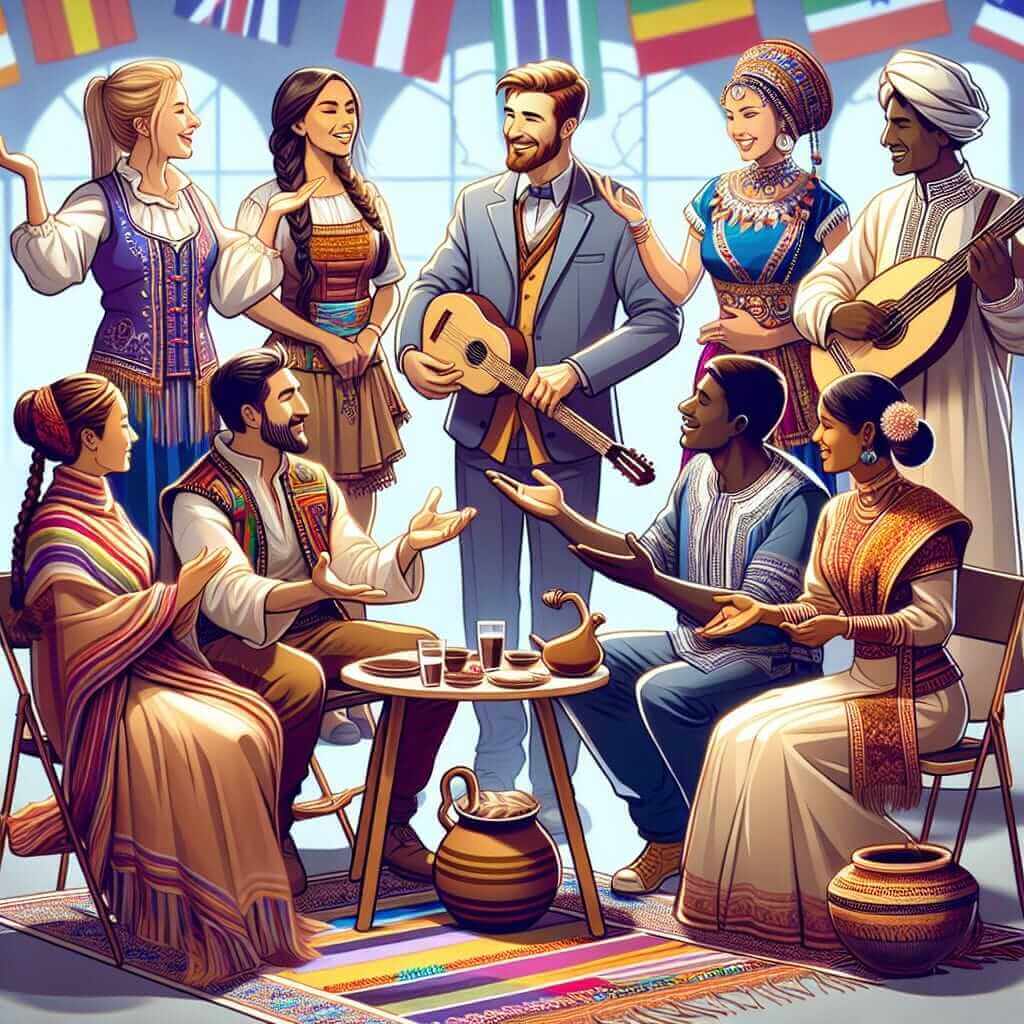The IELTS Speaking test is divided into three parts: Introduction and Interview (Part 1), Long Turn (Part 2), and Two-way Discussion (Part 3). As an IELTS examiner, I can tell you that your performance will be assessed on several criteria including fluency and coherence, lexical resource, grammatical range and accuracy, and pronunciation. A common theme in the Speaking test is cultural experiences, which provides an excellent opportunity to showcase your English proficiency, especially for the prompt “Describe a time when you learned about a new culture.”

Part 1: Introduction and Interview
In Part 1, the examiner will ask you questions about yourself and your experiences. Here are some common questions:
- Can you tell me about your hometown?
- What do you do in your free time?
- Have you ever traveled to another country?
Sample Answer
“Yes, I have traveled to several countries. One of the most memorable trips was to Japan. I got to experience the traditional tea ceremonies and learn about Japanese customs. It was fascinating to see how much importance they place on respect and etiquette.”
Part 2: Long Turn
Cue Card
Describe a time when you learned about a new culture. You should say:
- When and where this happened
- What you did
- What you learned about the culture
- And explain how you felt about learning of the new culture
Sample Answer
When and where this happened:
“About two years ago, I had the opportunity to participate in an exchange program in Spain.”
What you did:
“During my stay, I attended various cultural workshops that introduced me to Spanish traditions, food, and festivals. One such event was the La Tomatina festival in Buñol.”
What you learned about the culture:
“I learned a lot about the Spanish way of life. For instance, their meals are a social event and can last for hours. I also experienced the vibrant energy of their Flamenco dance performances and understood the historical significance behind them.”
And explain how you felt about learning of the new culture:
“I felt incredibly enriched by this experience. It opened my eyes to different perspectives and helped me appreciate the diversity of human expression. It was truly an eye-opening experience that made me more culturally aware and sensitive.”
Follow-up Questions
- “How did the experience impact your view of your own culture?”
- “Have you tried sharing this new knowledge with others?”
Part 3: Two-way Discussion
Sample Discussion
Examiner: “How important is it to learn about other cultures?”
Candidate: “I believe it is vital to learn about other cultures because it fosters mutual respect and understanding. In today’s globalized world, cultural awareness can break down barriers and build stronger relationships both personally and professionally.”
Examiner: “What are some ways people can learn about new cultures?”
Candidate: “People can learn about new cultures through travel, participating in cultural exchange programs, attending festivals, and even engaging in online communities. Reading books or watching documentaries about different parts of the world can also be very enlightening.”
Examiner: “Do you think younger generations are more open to learning about different cultures compared to past generations? Why?”
Candidate: “Yes, younger generations are generally more open to learning about different cultures due to the accessibility of information and increased opportunities for international interactions. They grow up in a more interconnected world and are often encouraged to be more inclusive and open-minded.”
Essential Vocabulary and Phrases for High Scores
Vocabulary
-
Enriched (adj): /ɪnˈrɪtʃt/ – Full of valuable content or qualities
- Example: “I felt incredibly enriched by this experience”
-
Vibrant (adj): /ˈvaɪ.brənt/ – Full of energy and life
- Example: “The vibrant culture was truly fascinating”
-
Exchange program (n): /ɪksˈtʃeɪndʒ ˈprəʊɡræm/ – A program for exchanging students between countries
- Example: “I had the opportunity to participate in an exchange program”
Phrases
-
Break down barriers: This phrase means to remove obstacles
- Example: “Cultural awareness can break down barriers”
-
Mutual respect: Shared recognition of the value or status of each other
- Example: “It fosters mutual respect and understanding”
-
Cultural awareness: Knowledge and understanding of different cultures
- Example: “Made me more culturally aware and sensitive”
Conclusion and Tips
Examiner’s Tips for Practice
- Fluency and Coherence: Practice speaking fluidly and coherently. Use connectors and discourse markers to link your ideas.
- Lexical Resource: Aim to use a broad range of vocabulary accurately. Avoid repetition.
- Grammatical Range and Accuracy: Use a variety of sentence structures. Pay attention to tense and aspect.
- Pronunciation: Clear pronunciation is crucial. Practice stress, intonation, and rhythm.
Final Words
To excel in the IELTS Speaking test, practice regularly, seek feedback, and expand your vocabulary. Engaging in discussions and exposing yourself to different cultures can significantly enhance your ability to articulate thoughts clearly and effectively. Good luck!